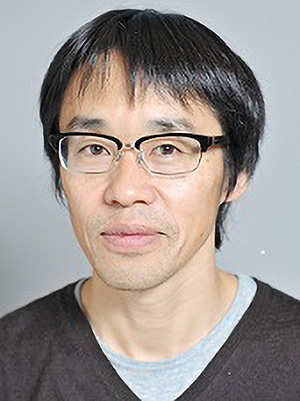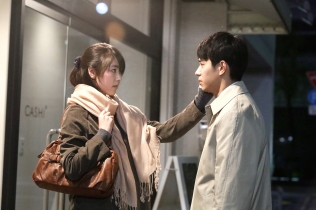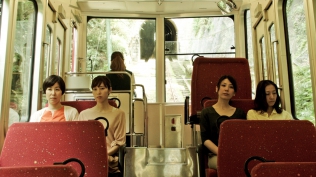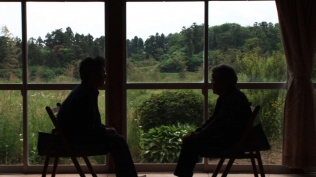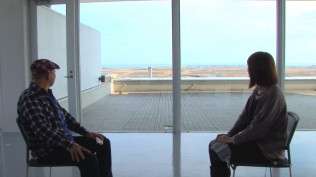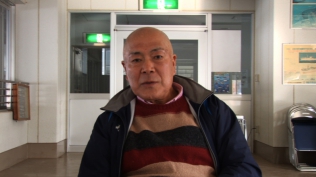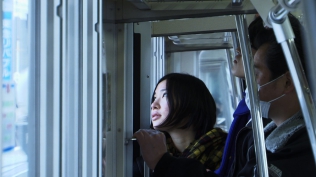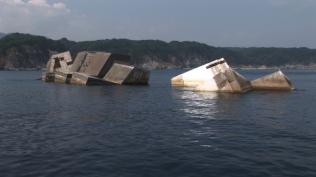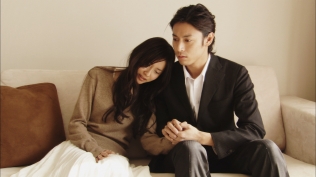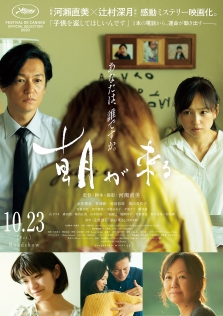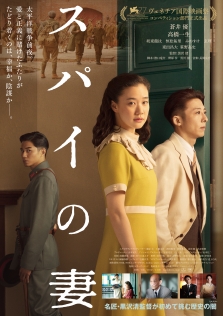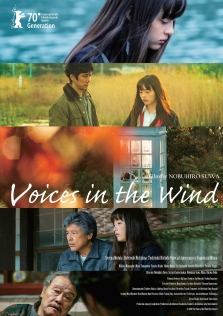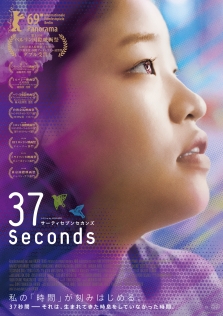Berlin Silver Bear winner Hamaguchi Ryusuke and his filmography of titles full of surprises
In March, Hamaguchi Ryusuke's "Wheel of Fortune and Fantasy" was awarded the Silver Bear Grand Jury Prize at the 71st Berlin International Film Festival which was held online. By winning the second biggest prize at one of the three major international film festivals Hamaguchi has at long last shot onto the world stage.
He was widely noticed after "Happy Hour" earned all four actresses - their debut appearance in a film - the Best Actress award at the 2015 Locarno International Film Festival. Furthermore, its over five hour runtime was entirely unprecedented.
Hamaguchi belonged to the Tokyo University Cinema Club and after graduating went on to the graduate film program at the Tokyo University of the Arts. There he received instruction from the likes of Kurosawa Kiyoshi and others resulting in his 2008 graduation film "Passion" which was chosen to compete at Tokyo FILMeX. In 2013, he released a trilogy of documentaries dealing with the Great East Japan Earthquake co-directed with Sakai Kou: "Sound of the Waves" “Voices from the Waves" and "Storytellers." He also released the short film "Touching the Skin of Eeriness" among others and slowly became acclaimed among those in the know. Forgoing partnerships with major film studios or broadcasting companies, his filmmaking is comparable to independent production. The origin of "Happy Hour" as well was a workshop Hamaguchi himself operates. His first commercial film was "Asako I & II," based off Shibasaki Tomoka's novel, and starred professional actors such as Higashide Masahiro. The film was chosen for the Competition section of the 2018 Cannes Film Festival.
"Wheel of Fortune and Fantasy" is a collection of short stories dealing with the same theme. All three are conversational "plays" through which connections are created between the characters from unexpected reunions to misunderstandings. As words are exchanged, the balance of those relationships change moment by moment.
Hamaguchi's films are full of surprises. Despite being almost entirely dialogue driven, they possess a power and tenseness akin to action films. It's said "an interesting film greatly changes from start to finish." That change is made to happen through dialogue and the directing technique for this is unique. According to Hamaguchi, "The actor and the character are different people. Making them say the dialogue is impossible." Before the start of filming, he has the actors read the script without emotion so as to ingrain the dialogue into the body until they are spoken naturally. The emotional reactions and reflexes are captured for the first time on set. The real emotions are unquestionable regardless of the occasional flat enunciation of the lines. The length of his films is also unconventional. The five hour "Happy Hour" and the three, 40 minute short stories of "Wheel of Fortune and Fantasy" are outside of the norm. "I have an attachment to the characters and I'm unable to control the length when I want to see their connections."
The Japanese directors who frequent international film festivals are made up of veterans who came on to the scene in the 90s, Kore-eda Hirokazu heading the list. Last year, Suwa Nobuhiro's "The Phone of the Wind" was screened at Berlin, Hamaguchi contributed to the script of Kurosawa Kiyoshi's "Wife of a Spy" which won the Silver Lion for Best Direction at Venice, and Kawase Naomi's "True Mothers" was an official selection at Cannes. On the other front, young filmmakers are at last starting to make their appearance. In 2020, Fukada Koji's "The Real Thing" was screened at Cannes, and HIKARI's debut feature "37 Seconds" was programmed at Berlin. Hamaguchi, who also has a new film, "Drive My Car," waiting in the wings, looks to be adding to the new faces of Japan.

